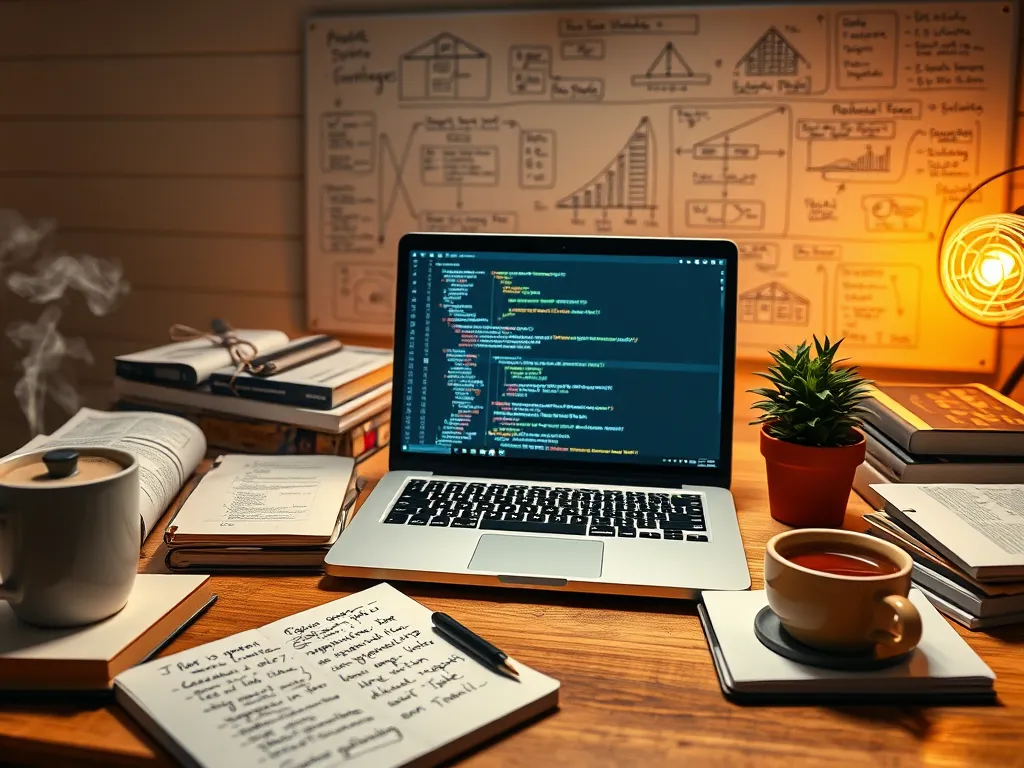5 Practices to Become Good In Development

Good In Development: Cultivating Skills for Success
Good In Development refers to the continuous improvement and mastery of skills and knowledge in software development. In today's fast-paced tech world, developers must stay up to date with the latest trends, tools, and languages. Achieving proficiency requires strategic learning methods, collaboration, and a commitment to problem-solving. This article explores several essential components that contribute to being good in development.
For organizations striving to enhance their practices, pursuing strategies that are Good In Development is essential.
To be good in development, one must embrace effective learning strategies. These strategies enable developers to learn more efficiently and deepen their understanding of complex concepts. By utilizing online courses and tutorials, participating in coding bootcamps, and engaging with coding communities, aspiring developers can accelerate their learning journey. The focus should be on building a solid foundation of knowledge and skills, which is crucial for a successful career in the field.
Moreover, mastering coding languages is a critical aspect of being good in development. Software developers often work with multiple programming languages, each serving different purposes. Understanding the syntax and semantics of these languages, along with exploring language-specific frameworks, can significantly enhance a developer's ability to write quality code. Building projects using various languages helps solidify this knowledge and prepares developers for real-world challenges they may face in their careers.
Version control systems are another vital tool for anyone looking to be good in development. By effectively managing changes to code and collaborating with other developers, version control not only keeps track of project progress but also allows teams to work more cohesively. Understanding how to use systems like Git, along with best practices for commit messages, will help developers maintain organized and efficient workflows.
In addition to technical skills, building strong problem-solving skills is essential for developers. The ability to debug code efficiently and approach challenges systematically can make a significant difference in a developer's success. Regularly practicing coding challenges and learning algorithms and data structures can strengthen these skills. Furthermore, techniques such as pair programming can enhance learning and foster collaboration among developers.
Effective Learning Strategies
Utilizing online courses and tutorials is an excellent way to acquire new skills at one's own pace. Numerous platforms offer structured learning paths that cater to a wide range of programming topics. These resources often come with interactive exercises that facilitate hands-on practice, which is vital for reinforcing concepts.
Participating in coding bootcamps provides intensive training and mentorship, which can accelerate a developer’s learning process. These immersive programs often focus on practical skills, project-building, and collaboration, preparing participants for real-world development environments.
Leveraging coding communities for feedback is key to improving coding skills. Developers can share their code and projects with experienced peers who can provide constructive criticism and suggestions for improvement. Engaging in discussions within these communities also exposes developers to diverse perspectives and solutions.
Implementing spaced repetition techniques can greatly enhance memory retention. By revisiting concepts at strategically spaced intervals, developers can reinforce their learning over time, making it easier to recall important information when needed.
Lastly, practice through real-world projects is invaluable. Building applications or contributing to existing projects not only solidifies understanding but also allows developers to face practical challenges. This hands-on experience is crucial for developing the skills needed to be good in development.
Mastering Coding Languages
Choosing the right programming languages to learn depends on career goals and interests. By focusing on languages that are in demand or align with current industry trends, developers can better position themselves for future opportunities.
Understanding syntax and semantics is fundamental in mastering any programming language. Syntax refers to the structure of the language, while semantics involves the meaning of the code. Grasping both aspects ensures that developers can write clean, efficient, and functional code.
Exploring language-specific frameworks can enhance a developer’s skill set and streamline their development process. Many frameworks provide built-in functionality that allows developers to create applications more quickly without sacrificing quality.
Building projects using multiple languages showcases versatility and adaptability. Developers can work on diverse projects that utilize different technologies, further enriching their expertise and experience.
Contributing to open-source projects not only aids in mastering coding languages but also expands a developer's network. Being part of an open-source community allows developers to learn from others, contribute their skills, and gain recognition within the tech community.
Version Control Systems
The importance of version control in development cannot be overstated. It allows developers to track changes, manage different versions of code, and collaborate more effectively with team members. It is an essential practice for maintaining organization and preventing conflicts during development.
Using Git for collaborative projects enables teams to coordinate their efforts seamlessly. Git's branching and merging features facilitate parallel development, allowing multiple developers to work on various features without interfering with each other's work.
Understanding branching and merging is crucial for effectively utilizing version control systems. Branches allow developers to work on isolated features, while merging integrates these changes back into the main project. This workflow is instrumental in maintaining project integrity.
Exploring repositories on platforms like GitHub opens up a world of possibilities for learning and collaboration. Developers can access a wealth of open-source projects, contribute their skills, and even showcase their own work to potential employers.
Best practices for commit messages ensure that the intent and context of changes are clear. Well-written commit messages improve collaboration and aid in tracking project evolution, making it easier for team members to understand the rationale behind changes.
Building Strong Problem-Solving Skills
Techniques for debugging code efficiently are indispensable for developers. Understanding common pitfalls and employing systematic approaches to identify and resolve errors can save time and frustration, leading to more effective development.
Practicing coding challenges regularly helps sharpen problem-solving skills. Platforms that focus on coding competitions often present developers with a variety of challenges that encourage critical thinking and creative solutions.
Learning algorithms and data structures is foundational for any developer looking to enhance their problem-solving capabilities. A strong grasp of these concepts aids in writing optimized code and developing efficient solutions to complex problems.
Approaching problems with a systematic method allows developers to break down complex challenges into manageable parts. This technique improves clarity and focus, and it enables developers to tackle issues more effectively.
Engaging in pair programming sessions not only promotes collaboration but also enhances learning. By working closely with another developer, individuals can exchange ideas and solutions while gaining different perspectives on problem-solving techniques.
Networking and Community Engagement
Joining developer forums and meetups provides opportunities for networking and knowledge sharing. Engaging with other professionals in the field can lead to new collaborations and insights that fuel growth.
Participating in hackathons challenges developers to apply their skills under pressure while working with others. These events foster creativity and innovation, allowing developers to experiment with new ideas and technologies.
Engaging with mentors in the field can provide invaluable guidance and support. Mentorship helps developers navigate their careers, gain insights into best practices, and expand their professional networks.
Building a personal brand on social media platforms can enhance visibility and connectivity within the tech community. Sharing insights, projects, and experiences can attract interest from potential employers and collaborators alike.
Contributing to technical blogs and articles not only establishes a developer’s expertise but also aids in the overall growth of the community. Sharing knowledge and experiences through writing fosters collaboration and encourages the sharing of ideas in the field.
